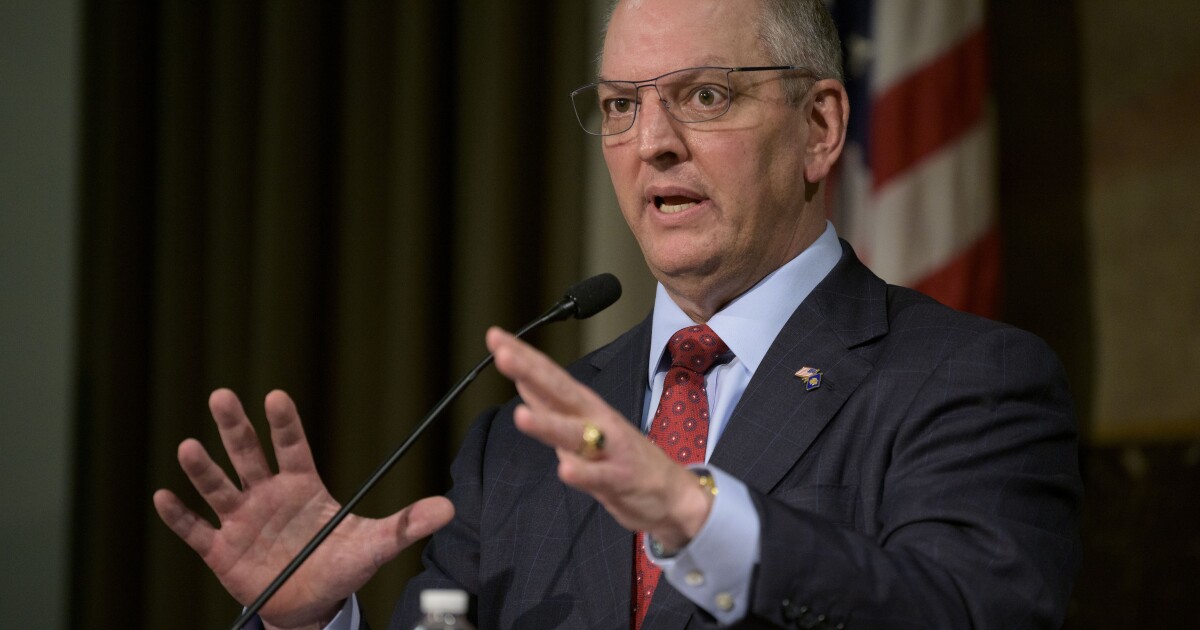

Just when the decennial line-drawing process appeared to be over following New Hampshire’s new map last week, a federal judge upended Louisiana‘s congressional map and ordered the state back to the drawing board.
The U.S. District Court for the Middle District of Louisiana determined that the map likely flouted the Voting Rights Act and ordered a new one rendered with an additional black-majority district by June 20 or else the court will craft one itself.
LOUISIANA LEGISLATURE OVERRIDES VETO AND ENACTS CONGRESSIONAL MAP FAVORABLE TO GOP
“The Court concludes that Plaintiffs are substantially likely to prevail on the merits of their claims brought under Section 2 of the Voting Rights Act,” the court wrote. “Absent injunctive relief, the movants are substantially likely to suffer irreparable harm. The Court has considered the balance of equities and hardships associated with injunctive relief, as well as the public policies attendant to the issuance of injunctive relief, and concludes that injunctive relief is required under the law and the facts of this case.”
Louisiana’s secretary of state immediately appealed the decision.
The court cited precedent established in Thornburg v. Gingles in its decision to issue a preliminary injunction against the map, concluding that the map most likely illegally compressed the black vote into a single district. Gingles laid out three criteria for a claim of vote dilution under the Voting Rights Act to succeed: that the minority group must be sufficiently large and “politically cohesive” and “that the white majority votes sufficiently as a bloc to enable it … usually to defeat the minority’s preferred candidate.”
Nearly one-third of the Bayou State is black, but only one district is majority black — the 2nd Congressional District, which has a 62% black population. Only one of the state’s six seats is controlled by Democrats, meaning Republicans have control of 83% of the state’s congressional seats.
“Today’s decision is welcome news for Black voters in Louisiana who, for decades, have been racially gerrymandered into a single district that has diluted the power of their vote and their ability to elect candidates of their choice,” said Mike McClanahan, president of the Louisiana State Conference of the NAACP. “A new map with two majority-Black districts will finally give Black voters the full representation that is their right.”
Louisiana’s congressional seat count was unchanged by the census, and its new map hewed closely to the prior arrangement. Still, Democrats sought to strike down the map, claiming the prior layout was a violation of the Voting Rights Act. Democratic Gov. John Bel Edwards vetoed the map, but the Republican-led state legislature overrode that veto in March.
“Louisiana’s enacted Congressional map is a least changes version of the map used since 2012 that was precleared by Eric Holder’s Justice Department,” the National Republican Redistricting Committee tweeted after the ruling.
Louisiana’s enacted Congressional map is a least changes version of the map used since 2012 that was precleared by Eric Holder’s Justice Department.
Marc is up to his old tricks. Declare victory and then lose on appeal. https://t.co/i6eqQhyFik
— National Republican Redistricting Committee (@GOPRedistrict) June 6, 2022
Republicans gained three to four congressional seats from the latest redistricting cycle, according to Dave Wasserman, a national elections analyst for the Cook Political Report. If Louisiana enacts a map that adheres to the court’s demands, Republicans would be poised to lose their advantage in one of those districts.
CLICK HERE TO READ MORE FROM THE WASHINGTON EXAMINER
Unlike most states, Louisiana does not have a traditional primary system. All candidates run for office on the same ballot. The candidate who receives the majority of votes wins the seat. If no candidate wins, the top two contenders advance to a runoff. This means the de facto “primary elections” in the Bayou State take place in November. While the state does not have the kind of primary deadline other states have, it does have a June 22 deadline for congressional candidates to file.
“The Court finds that, although Hadskey’s testimony demonstrated general concern about the prospect of having to issue a new round of notices to voters, she did not provide any specific reasons why this task cannot be completed in sufficient time for November elections, nearly 6 months from now,” the court added, addressing concerns about the timing of its decision.
Louisiana is now the only state without a legally binding congressional map in place.







